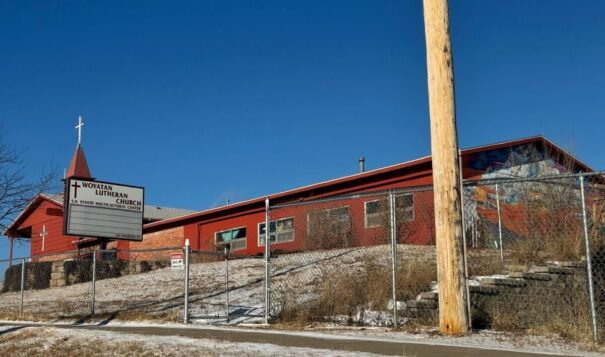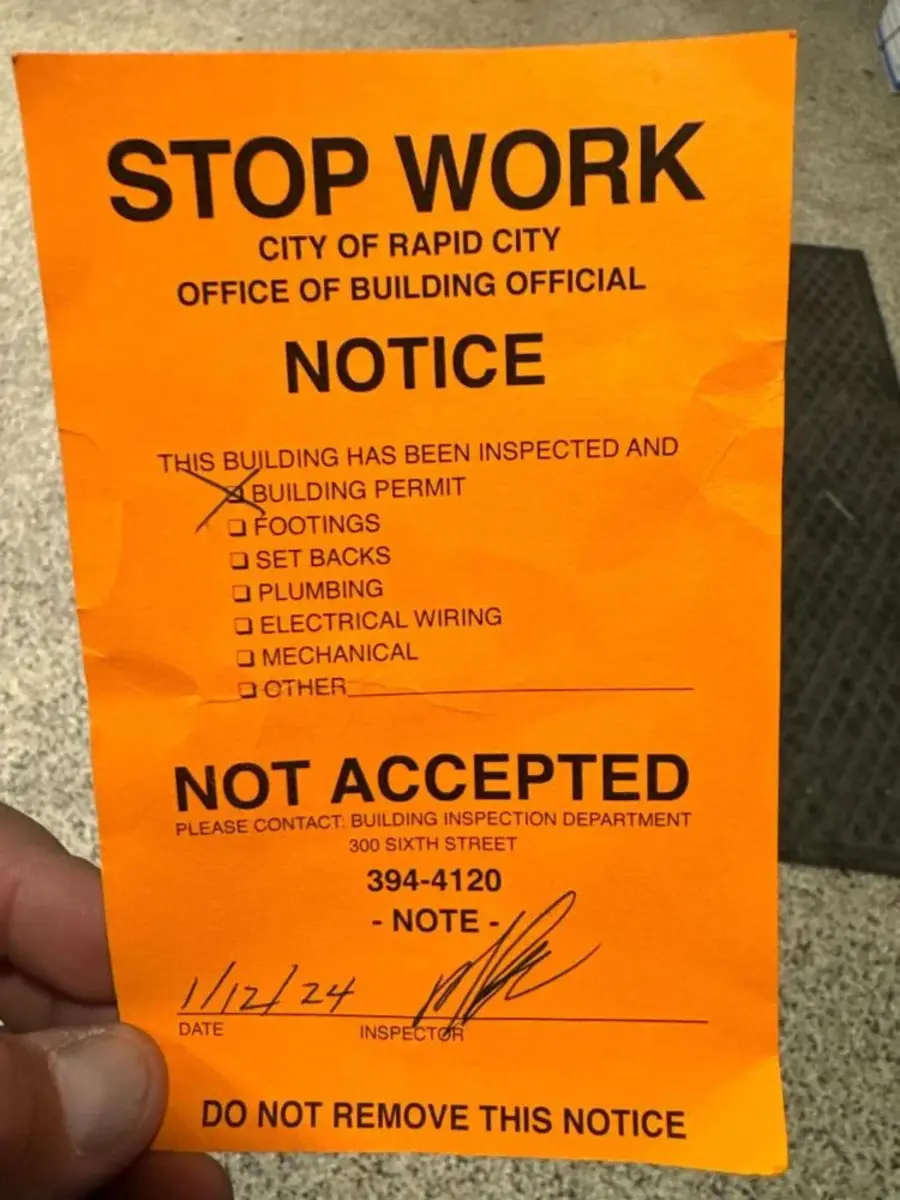News Based on facts, either observed and verified directly by the reporter, or reported and verified from knowledgeable sources.
City closes shelter for Natives amid arctic freeze
 The Woyatan Lutheran Church is an Indigenous-led church on Rapid City's northside. (Darsha Dodge, Rapid City Journal)
The Woyatan Lutheran Church is an Indigenous-led church on Rapid City's northside. (Darsha Dodge, Rapid City Journal)
Local Native nonprofits in Rapid City, S.D., are serving Indigenous homeless people unwilling to stay at other local shelters
As temperatures dipped below zero Friday, January 12, Rapid City officials decided to close a makeshift warming shelter that was to serve Indigenous homeless people.
Two Native-serving nonprofits – Woyatan Lutheran Church and Wambli Ska Society – had planned to open the military grade warming tent as an additional shelter. But Friday afternoon, city administrators issued a stop work notice to organizers.
“When city staff went to the property to issue an order not to proceed with the use of that tent, it was with the acknowledgment that the permits had not been secured, but that we had a bigger crisis on hand,” said Vicki Fisher, Rapid City community development director. “We have a cold spree that we’ve not experienced in a long time. And we have a lot of vulnerable people that need to be sheltered. So the message was you don’t need to take down a tent. Just please don’t use it. It is so frigid that the action of trying to heat it would put those people in jeopardy of a fire.”

Around 4:30 p.m. Rapid City Police Officer John Olson, escorted by Lt. Tim Doyle, arrived to issue the stop work order. Chris White Eagle, leader of the Lakota Center at Woyatan Lutheran Church, spoke with Olson and Doyle and said he was told the Pennington County Jail could be used as a temporary shelter if the Cornerstone Mission and Care Campus hit max capacity.
“We looked at him like, ‘Are you saying that’s our option, to save your life you need to go to jail,’” White Eagle said.
Earlier on Saturday Rapid City Police Department Community Relations Director Brandyn Medina said that if all other options were exhausted, the Pennington County Jail could be used as a temporary shelter.
“I think they [Olson and Doyle] were speaking on generalities and talking about it on a broad spectrum,” Medina said. “It’s not saying that we would find charges to put somebody in the jail or charge them criminally so they could go into the jail, it’d be in a total noncriminal context. It would be simply using the extent of our resources to make sure that nobody was turned away into the cold.”
Later on Saturday, Medina said the county sheriff’s office clarified that the jail would not be used as a temporary shelter and that the existing resources would suffice.
A Facebook post from the Rapid City Municipal Government Saturday morning stated there is an “abundance of space” at city shelters.
“At no point since this cold snap began has the Care Campus or Mission been full or turned individuals away. Anyone seeking shelter during this frigid cold spell are reminded to seek shelter at either facility,” the post said.
Medina said law enforcement officers are conducting extra patrols to contact and transport individuals struggling with the cold.
Several local Native nonprofits had come together to serve homeless people following the closure of the Hope Center, a shelter that served mainly Native people. Those organizations are working to provide food, water and shelter to those who either cannot go to the Cornerstone Rescue Mission or the Care Campus or don’t feel comfortable going.
“A lot of them don’t like going on to the Campus. A lot of them don’t like going to the Mission,” White Eagle said. “The mayor is making it very clear that those are our resources, and that’s the only thing that they have.”
As a backup, the Lakota Homes Oyate Center has been opened for those in need of a warming shelter or a meal. Various Indigenous community groups will be serving meals at the Oyate Center throughout the day.
“If you call anywhere around the Native community right now, there’s people cooking, there’s people driving, there’s young men walking under the bridges,” said NDN Collective Founder and CEO Nick Tilsen. “We’re getting out of our vehicles. We’re helping the people, we’re getting rides and we’re trying to utilize every service that’s available. An army tent in the middle of winter is totally last resort.”
Dateline:
RAPID CITY, S.D.

Gregory Utter
Help these people it is not very nice out there and they don’t have any money to pay for the food